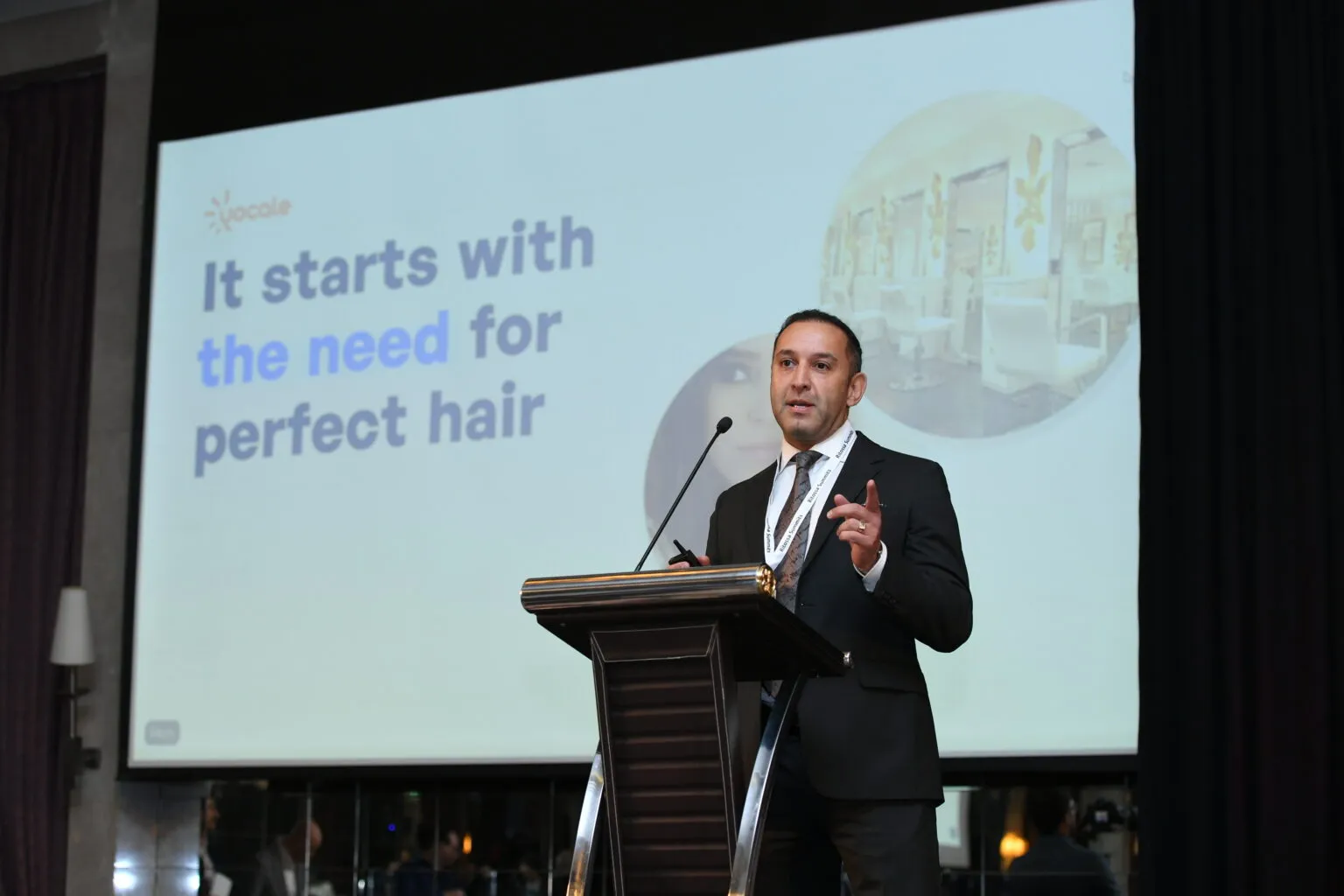This article was also featured in Fast Company, where we explored how enduring leadership principles apply in today’s business landscape.
From Arash Asli, CEO, Yocale.
As we were watching the Stanley Cup finals, I sat down with Arthur Griffiths, former owner of the NHL’s Vancouver Canucks and NBA’s Vancouver Grizzlies. We explored what the world of professional sports can teach us about building teams, nurturing communities, and supporting mental resilience in business. What emerged was a blueprint for leadership that applies just as powerfully in the boardroom as it does behind the bench.
1. Building a Community
So many businesses try to build communities, but sports franchises are communities at their core. For Arthur, it starts by defining “what makes your community unique.”
“We had it good, I built a dedicated arena, and we were on fire. When we went deep into the Stanley Cup playoffs,” he recalls, “our city galvanized, then the province, then the country. Sports teams have a rare power to bring people together.”
That unity has to be earned. “It starts with hiring management, coaches, and players who understand that giving back isn’t just talk, it must be tangible and impactful.”
Leadership begins with ownership. “No matter the business, you have to find where you can make a real impact and elevate the passion in people. If you are really involved with the community, they'll stick with you.”
2. Balancing Stakeholders
“Balancing stakeholders in a professional franchise is like managing a live organism,” Arthur says. “Every part is vital, and urgency is constant. On and off the ice, the stakes are high, emotions run deep, and public scrutiny is relentless.”
“You can’t please everyone, but you can respect everyone.” That principle guided his relationships with players, executives, sponsors, and fans.
One of his first moves was to define a set of charitable causes that reflected the team’s values. “We walked the walk. There isn't anyway around it, you have to tangibly contribute, you need to center charitable efforts in an organization. We aligned ownership, players, media, and corporate partners around a shared purpose.”
Even when not every request could be fulfilled, they found ways to add value. “Sometimes a signed stick or ticket raffle made someone’s day. That mattered.”
Internally, loyalty was celebrated. Long-term players and staff received commemorative rings or necklaces. “We did everything to create a family like atmosphere.” he says.
When things got tough after a bad loss or public backlash, Arthur leaned into steadiness. “Trust is built in calm and tested in crisis. Sometimes the instinct is to be involved in everything, micromanage. I tried to shape my own role as that of a steward, guiding the long term strategy, keeping things steady. That's what builds trust to me.”
3. Building the Right Team
“In sports, every personnel move plays out under a microscope. On the scoreboard, in the headlines, in the hearts of fans,” Arthur says. "There is moral hazard involved - the decisions I make have to make sense for a future where I or the team I assembled isn't around anymore.”
Arthur’s first lesson in team building came early. “I was fortunate to have great mentors, my mother and father taught me a lot about people and business. Hire people who share your values, not just your vision. You can teach skills. You can’t teach character.”
He was very young when he started in the sports business. “I focused on observing and learning from the management team already in place,” he says. “We had some early success on the ice, but then our general manager tragically passed away. Suddenly, I had a big, pressing task on hand: to recruit a new hockey president and GM.”
“Finding the right person to lead was critical. It was about rebuilding trust with fans and stakeholders.”
Arthur is deliberate when he says “my team,” underscoring the owner’s role as a steward. “Without fans, there is no team, there are no partners. You’re not just an owner—you’re a trustee for the team, and most importantly, for the fan base.”
His leadership philosophy is simple: “Hire the best person, give them the tools to succeed, and then step back. You need to trust your people and let them lead.”
4. Resilience and Mental Health
There is no game like hockey where players must make split-second decisions with a puck traveling at over 90–100 mph.
“Mental health is close to my heart,” Arthur says. “In my days, players didn’t talk about it. If you got hit in the head, you said, ‘Just got my bell rung. I’ll be fine.’ Toughness was measured by how well you could hide pain. That mindset was deeply ingrained in the culture.”
But that mindset evolved. “True resilience is being open about struggling, accepting help, and overcoming. Much, much harder than shutting it all out, and shutting out others. ”
Arthur invested in mental health professionals and created an environment where players could get help without fear of judgment. “You can’t ask people to perform at the highest level under that kind of pressure without giving them the tools to care for their minds as well as their bodies.”
He recalls one coach who refused to bench a player after a costly mistake. “He told me, ‘If I pull him now, I’m not correcting him, I’m humiliating him in front of 18,000 fans.’ That’s real leadership. It stayed with me.”
That lesson carries into everything he does today. “People perform better, not when they’re pressured to be flawless, but when they know someone’s in their corner.”
“A game is a game; we all have to play through our struggles, and it’s best if we are supported in doing so rather than put down.”
He leaves us with a line he often returns to, from Winston Churchill: “If you’re going through hell, keep going.”



